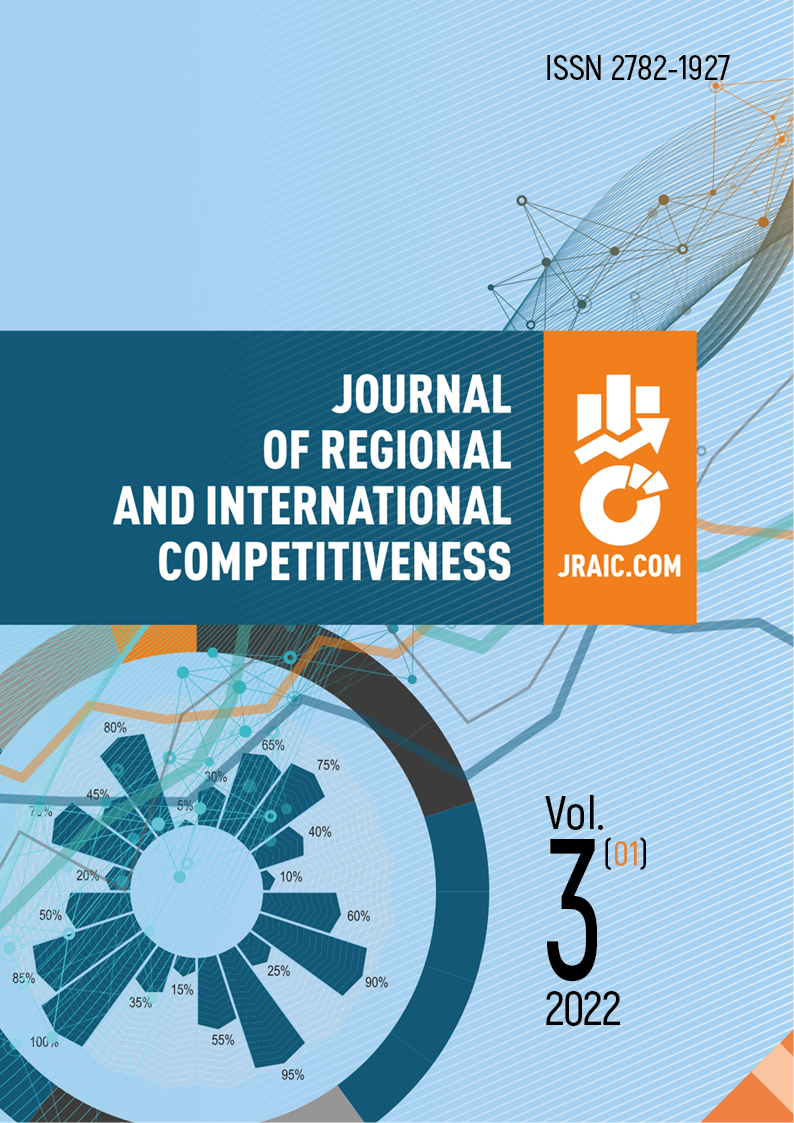Ярославль, Ярославская область, Россия
The article examines the relationship between taxes and organisational competitiveness, through the redistribution of national income, the fiscal function of taxes and the economical stimulation of production. One of the most effective forms of modern economic management, including those affecting the competitiveness of economic agents, is state fiscal regulation. Taxes, by participating in the redistribution of new value, are part of a single process of reproduction, a specific form of production relations. Fiscal regulation covers the economic life of a country, the structure of production, capital formation, personal consumption, and the very competitiveness of economic agents, since tax measures are the most universal tool for influencing superstructure relations on the basis. In addition to the financial function of securing government revenue, the fiscal tools contain enormous potential for economic impacts on the economic agents competitiveness.
TAXES, COMPETITIVENESS, TAX SYSTEM, ECONOMIC RELATIONS, TAX POLICY, FISCAL TOOLS
1. Abalkin, L. I. (2000). Russian school of economic thought: the search for self-determination. M.: Institut ekonomiki RAN (in Russian)
2. Antonov, G. D., Ivanova, O. P., & Tumin, V. M. (2012). Managing the competitiveness of an organisation. M.: INFRA-M (in Russian).
3. Vavilov, Y. Y., Egorycheva, I. N., Sedova, M. L., & Semenova, O. N. (2003). Finance. M.: Soc. otnosheniya (in Russian).
4. Van Horn, J. K. (1997). Fundamentals of financial management. M.: Finansy i statistika (in Russian).
5. Lanin, B. E. (Ed.) (1992). Everything began with a tithe. M.: Progress (in Russian).
6. Cherkovets, V. N. (Ed.) (1989). World history of economic thought. In 6 vols. V. 3. M.: Mysl’ (in Russian).
7. Gorsky, I. V. (1999). Tax policy and economic growth. Financy, (1), 22-26 (in Russian).
8. Gorsky, I. V. (2001). Taxes in the economic strategy of the state. Financy, (8), 36-47 (in Russian)
9. Arkhangelsky, V. N., Budarina, A. V., Bulanov, V. S. et al. (2002). State Regulation of Market Economy. V.
10. Gurvich, E. (2003). Russian tax reform - first results. Modernisation of Russia’s economy: results and prospects. M.: Vyshaya shkola ekonomiki (in Russian).
11. Galbraith, J. K. (1979). Economics and the public purpose. M.: Progress (in Russian).
12. Zhuravleva, T. A. (2003). Realisation of economic interests as an objective basis of taxation. Financy i credit, (24), 76-78 (in Russian).
13. Zakhovaev, D. E. (1999). Taxes: political-economic aspect. Candidate’s thesis. Ivanovo (in Russian).
14. Kalsin, A. E. (2002). Methodological peculiarities of the study of economic relations of budgetary organisations of the Ministry of Defence of the Russian Federation. Vestnik KSU. Special issue, 25-37.
15. Kene, F. (1960). Selected economic works. M.: Sotsekgiz.
16. Kirdina, S. G. (2000). Institutional matrices and Russia’s development. М.: TEIS (in Russian).
17. Silin, J. P., & Dvoryadkina, E. B. (responsible authors). (2020). Competitiveness of territories. Proceedings of XXIII All-Russian Economic Forum of Young Scientists and Students (4 parts). (27-30 April 2020). P. 2: Directions: 05. Marketing and management: innovations, competition, threats and opportunities. 07 Social measurement of competitiveness. Ekaterinburg: Izd-vo Ural’skogo gos. universiteta ekonomiki (in Russian).
18. Kugaenko, A. A., & Belyanin, M. P. (1999). Theory of taxation. M.: Vuzovskaya kniga (in Russian).
19. Kuzyk, B. (2004). Russia has one effective way of development - its own. M.: Znanie (in Russian).
20. Lebedeva, N. N. (2000). Problems of implementing the functions of economic institutions in the Russian economy. Y. M. Osipov, M. M. Guzev, & E. S. Zotova (Eds.). Russia in current times. M.-Volgograd (in Russian).
21. Lvov, D., Makarov, & V., Kleiner, G. (2000). Russia’s economy at the crossroads of the century. М.: Upravlenie me`ra Moskvy (in Russian).
22. Lvov, D. S. (1999). Development of Russia’s economy and the tasks of economic science. М.: Ekonomika (in Russian).
23. Lyubimov, N. N. (1956). Finance of capitalist states. M.: Gosfinizdat (in Russian).
24. Mayburd, E. M. (1996). Introduction to the history of economic thought. M.: Delo, Vita-press (in Russian).
25. Bryzgalin, A. V. (Ed.). (1997). Taxes and tax law. M.: Analitika- Press (in Russian).
26. Polyak, G. B. & Romanov, A. N. Taxes and taxation (2012). М.: UNITI-DANA (in Russian).
27. Romanovsky, M., V. & Vrublevskaya, O. V. (Eds.). (2003). Taxes and taxation. SPb.: Piter (in Russian).
28. Chernik, D. G. (Ed.). (1996). Taxes. M.: Financy i Statistika (in Russian).
29. Chernik, D. G. (Ed.). (2002). Taxes. M.: Financy i Statistika (in Russian).
30. Nelson, R., & Winter, S. J. (2000). Evolutionary theory of economic change. М.: Finstatinform (in Russian).
31. North, D. (1997). Institutions, institutional change and economic performance. M.: Fond ekonomicheskoi knigi «NACHALA» (in Russian).
32. Oleynik, A. N. (2000). Institutional economics. M.: INFRA-M (in Russian).
33. Petty, V. (1993). Treatise on taxes. Anthology of economic classics. (2 vols. Vol. 1.). M: Econov (in Russian).
34. Pushkareva, V. M. (1999). Genesis of the category “tax” in the history of financial science. Finance, (6), 12-14 (in Russian).
35. Pushkareva, V. M. (1996). History of financial thought and tax policy. M.: INFRA-M (in Russian).
36. Schumpeter, J. (1982). Theory of economic development. M.: Progress (in Russian).
37. Yutkina, T. F. (1999). Taxation: from reform to reform. M.: INFRA-M (in Russian).



















